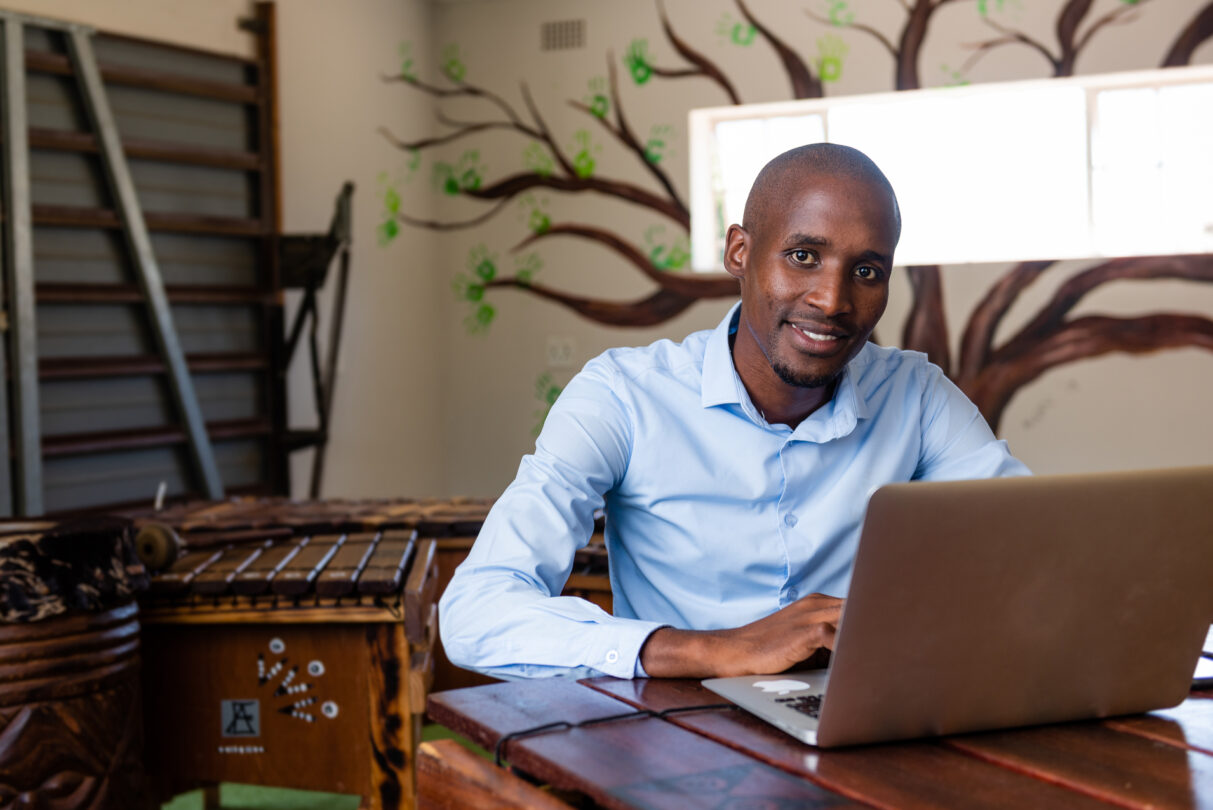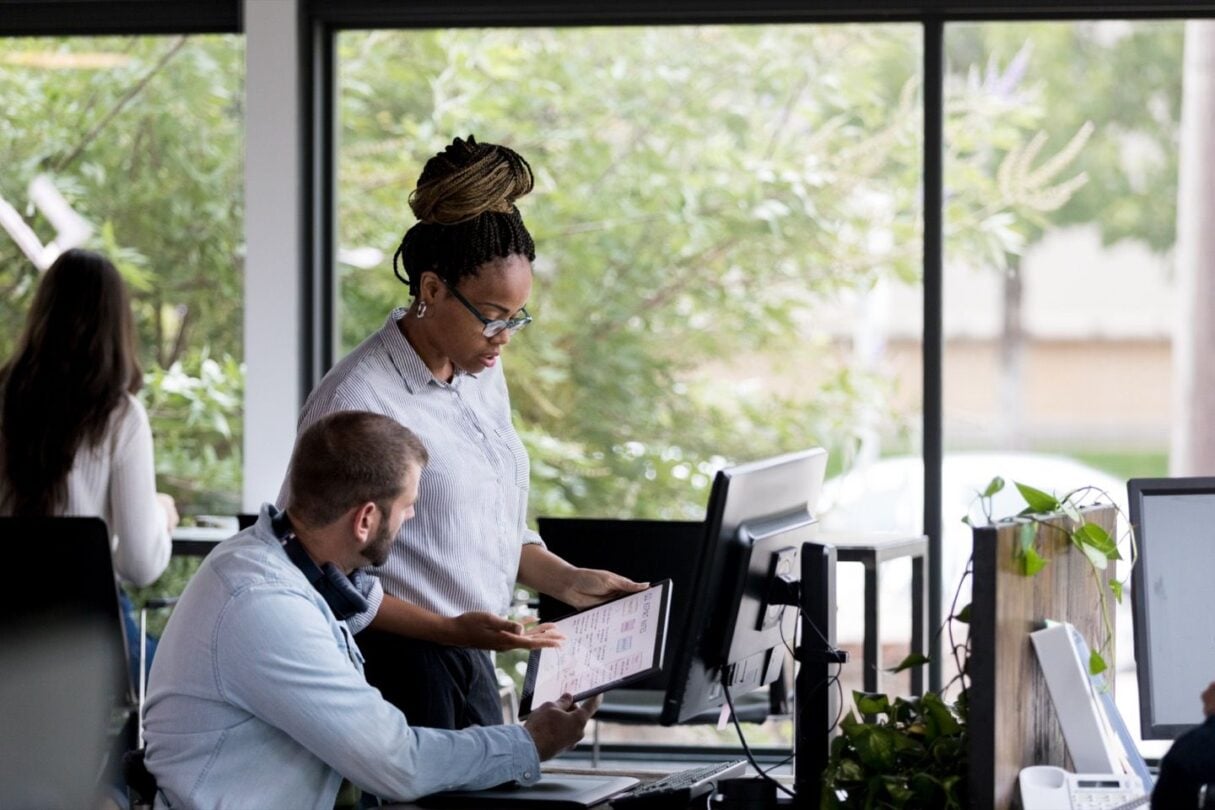Strategy, Legal & Operations
How CEOs can ensure their businesses thrive in the coming year
Three successful business leaders talk about the lessons they learnt from the pandemic and offer advice for overcoming challenges.

Looking after staff, ensuring investors are happy, managing cash flow and keeping customers content – CEOs have to keep more plates spinning than ever these days.
In this episode of Agility Unleashed, the podcast series from Sage that helps Britain’s businesses pick their way out of the pandemic, a group of business leaders from a variety of industries share their thoughts and insights on how CEOs can help their businesses thrive.
Here’s what they talk about:
The pandemic requires lateral thinking
CEOs need to look after themselves
Running a business: Data versus gut feeling
Tackling uncertain times
Cyril Journoux is CEO at PCL Ceramics, which makes pressure casting, mould development and advanced ceramics for the sanitaryware, hand former, pharmaceutical, defence and aerospace industries among others.
He describes 2020 as “a year of two parts”.
The first was very difficult while the second saw an “amazing recovery” with November witnessing the largest monthly sales for the company’s consumable division.
But it was that tough first half that tested Cyril and his team. “It’s really [a case of] reacting and managing cash and seeing how we are going to manage the business and make sure we don’t spend money we don’t have,” he explained.
The team focused on the long-term vision of the business. It took the opportunity, as well, to look at its technology and services and to talk to its customers and listen to what they wanted. Open communications with staff was also essential as was keeping positive, he believes.
Managing cash flow
Sinead McHale is CEO of Satago, a platform that helps businesses to manage their cash flow by covering cash flow gaps, managing debtors and predicting credit risks.
Running a business that helps other businesses to manage cash flow provides her with unique insights – in particular an alarming fall for some of them in revenue of around 50% year-on-year in March, April and May.
“The pound in your bank account today is worth more than that pound tomorrow,” she points out, as customers re-evaluated their payment terms. “It was a reassessment for a lot of people about how their cash flow worked and how it would impact them that was so unprecedented.”
However, this wasn’t so much of an issue for Richard Youngman.
He’s the managing director at Sicon, which develops innovative, high quality and highly functional additions solely for Sage 200.
Richard’s positive balance sheet left him feeling “a little smug”, as he puts it.
“I was able to say to the staff, ‘Look, guys, we have got enough money in the bank to get us through the next six months,'” he says.
But that didn’t mean that he and his senior managers rested on their laurels: “We decided not to furlough anybody and to spend that quiet time, assuming that nothing was going to happen for three months, looking at our products and development and doing all that work we never get time to do.”
As well as products, the Sicon leadership team focused on the mental health of its staff in these unprecedented and worrying times.
After a few weeks, the company discovered that it was not alone in using this time to review internal systems and procedures.
Richard says: “We started to get people knocking on the door going, ‘We have got someone who would like to put in a new manufacturing system’ or put in a barcoding system and it was manufacturers I think that came back first into the sector.
“It was them reflecting on ‘What can we do better, how can we improve our systems?’ We saw a big increase in people just then starting to buy software to improve the processes and manufacturing was a big sector for that.”
This was indeed the case for PCL Ceramics, reveals Cyril.
He says: “We spent a lot of time working on our technology road maps and we surveyed our customers and talked to them to understand what they wanted from us in the future, and we also introduced a lot of technology to work with our staff.”
Employee consultation and training were key to making the success of this technological upgrade.
The pandemic requires lateral thinking
Coronavirus put Sinead to the test and forced her to do some lateral thinking – and to pivot the company – something many CEOs have been forced to do.
“You have to lead from the front and say, ‘We’ll grab this opportunity’,” she points out. “We don’t just do cash flow, we’re also a lender, so we had to really think about how we were operating and lending to businesses.
“I’m answerable to a board, to investors and so I had to really believe in what we were doing.”
She agrees with Cyril: “You have to pivot slightly and think, ‘Let’s really get down to what pain points the customer is feeling and what anxieties they’re having right now and see how we can solve that’.”
Again, the effective pivot has been important to Richard in the way that he’s led his team through the pandemic.
“What I think I’ve been better at doing is putting down a good story to the team, making a change in strategy quickly, giving them a good explanation of why we’re doing it, making sure everyone’s on board with it and then we’re all going together,” he says.
Good teams, if well managed, will shine in these challenging situations, he believes.
For Cyril, building trust in a remote working environment, being aware of the power of emotion and then complementing it with gut instinct are two key learning points.
He says: “You have to be mindful that sometimes your emotions can make you go in a different way.
“It is all about making the difference between being overwhelmed and having too many changes and saying, ‘How am I going to manage that?’ and saying, ‘I need to make a decision and the right decision is this’.”
In response, Sinead emphasises the importance of data, explaining that her decision making is “100% data driven.”
So what would the CEOs take forward from their experiences of managing their businesses during the pandemic?
“Make your CFO your best friend,” advises Sinead.
Familiarity with the numbers and careful contingency and scenario planning is essential, she argues.
Forward planning with cash flow, based on the assumption that invoice payments may well be delayed is essential to avoid being rushed into expensive short term financing options.
Investing in technology can help here, she adds.
CEOs need to look after themselves
Cyril has a different but equally important insight to share: “Look after yourself. It’s been a very draining, stressful time and we need to look after everyone, but I’ve also made sure I looked after myself.
“If your mindset and head is in the right place the team will follow you.”
But what about another key issue for the health of any business – sales?
“I think we’ll still have face-to-face meetings and we need to build the relationship, we need to shake hands,” Cyril argues.
This is still the key to building trust but it will increasingly be backed up with customers having ever greater access to information about your company before they do business with you.
Inevitably, technology is important for our CEOs.
The need for more integrated systems has been another lesson of the pandemic, according to Richard.
“But ultimately it comes back to that same point we talked about a few times which is data, getting access to that data in an easy-to-understand format,” he adds.
A new service desk, a project management system and a customer relationship management (CRM) solution, which are joined up, has made a huge difference to Sicon, he explains.
Subscription services increase agility and have helped to manage costs and cash flow, he’s found.
Looking back over the past 18 months, Sinead admits that business has been more about the survival of the strongest than it usually is.
That said, she’s generally optimistic.
“We’ve had more new businesses set up in the last 12 months, which is fantastic because people are taking the opportunity to probably reset where they are from a personal perspective, to think about their careers and think about what they want,” she says.
“I guess [there are] pros and cons to everything but I think there are huge opportunities.”
Customers have been willing to embrace innovations such as remote installations, Cyril has been encouraged to find, but good old fashioned customer service is also key.
He says: “For us, that effort in supporting the customer despite the tough times has made a massive difference and we will have to keep that going as they expect that now.”
Richard agrees: “Bringing that whole ethos into the company and just trying to go the extra mile – I think that’s going to be the thing that will hopefully set us aside even more from the competition.”
So what advice would our CEOs give to themselves as they sat at their desks in March 2020?
“I spoke earlier about efficient gut feeling and so use your gut and make sure you take the decision and do it,” says Cyril.
Sinead takes a similar line – you need to own your decisions, even if they turned out to be wrong.
She adds: “You make a decision, based on the information you had at hand, so it was the best decision you could make at that time.”
Running a business: Data versus gut feeling
Richard agrees: “It’s a funny thing to say that we run our businesses on gut feeling but I do.”
In his case, his gut told him not to furlough staff: “I think that was a good decision because we were there for the people that needed us, and we could respond to them quickly.”
And how can CEOs deal with uncertainty?
Using data to make well-informed decisions can help here, suggests Sinead. However, taking the general business temperature with other business leaders is equally important, she adds.
For Cyril, the key is simple: “What’s the best decision I can make with what I’ve got in front of me and what do I see as the implication of the decision?”
Richard applies gut instinct to a major decision about the purchase of a new office.
He says: “I’m going with what my gut tells me there and acquiring that building to allow us to spread out a little bit more and be ready for that expansion.”
Whatever the decision, having the executive committee, the senior leadership team and the board onside is essential.
Sinead adds investors to that list: “Having the support of an investor that acknowledges and appreciates what’s happening in the market and supports your decisions, good and bad, is really, really important.”
The pandemic helped Cyril’s team to bond with its board.
He says: “I think coming out of it we gained the trust of the board, and all the stakeholders are really confident that we’re doing the right thing.”
Richard is in a different position.
“Myself and my wife own the business, so we have no shareholders and investors to worry about,” he explains. “Fortunately, I have a good senior management team who temper some of my crazy ideas sometimes and keep my gut instincts of doing something new and innovative a little bit more under control perhaps.”
And surely that’s the role of any good senior manager?
Agility Unleashed podcast
Check out more episodes from Agility Unleashed, a series of podcasts aimed at the C-suite that help Britain’s businesses pick their way out of the pandemic.






Ask the author a question or share your advice